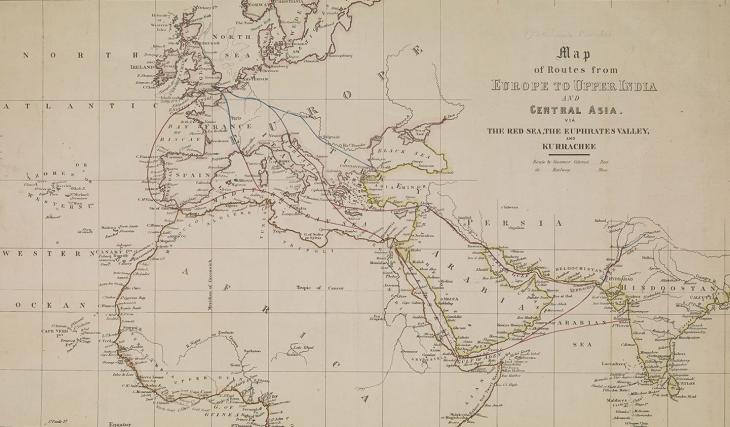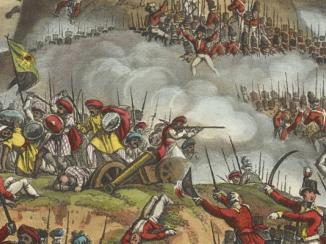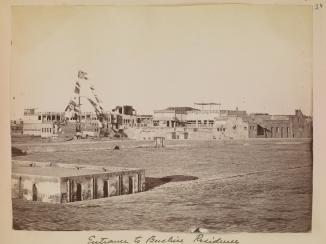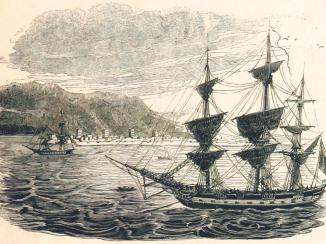Overview
Following the Indian Uprisings of 1857–58, the administration of India was placed directly under the control of the British Crown. A new department, the India Office The department of the British Government to which the Government of India reported between 1858 and 1947. The successor to the Court of Directors. (1858–1947), was set up to direct the overseas government.
From a magnificent building in London, the Secretary of State for India, with his team of civil servants, issued instructions in every area of business: military, home, foreign, financial, legal, economic, political and secret. While other government departments dealt with one area only, the India Office The department of the British Government to which the Government of India reported between 1858 and 1947. The successor to the Court of Directors. was like a government in itself.
Government in India
Over the next seventy years, London exercised tight control over India. New communication systems made this control easier. Submarine and overland cables were laid across the Gulf to India in the 1860s, which meant that instructions from London could be received almost immediately. The Suez Canal was opened in 1869, reducing the time of the voyage from London to Bombay to about twenty-four days.
London’s control extended to India’s informal empire. Many British outposts, or residencies, were established in countries beyond India, which created a zone of protection around the official empire. The residency An office of the East India Company and, later, of the British Raj, established in the provinces and regions considered part of, or under the influence of, British India. in the Gulf was the most important of these because of its location.
The British wanted to protect their shipping in the region. They also looked to defend the national interest against other European powers in the area, and to protect India against an increasingly powerful Russia. Political agents in the Gulf were well placed to gather information on foreign powers. These agents reported back to London through India.
In London, the India Office The department of the British Government to which the Government of India reported between 1858 and 1947. The successor to the Court of Directors. worked with other government departments. In Gulf affairs, the interests of the Foreign Office, the Admiralty, and the India Office The department of the British Government to which the Government of India reported between 1858 and 1947. The successor to the Court of Directors. were closely connected. The India Office The department of the British Government to which the Government of India reported between 1858 and 1947. The successor to the Court of Directors. also worked with the War Office to give military support in international conflicts. During the First World War, for example, 600,000 Indian troops were deployed in the Mesopotamian campaign.

Twilight of the India Office
Gradually, the India Office’s tight control over India began to relax. The slow progress towards Indian Independence was marked by official milestones: the Government of India Acts of 1919 and 1935. These Acts reduced the powers of the government in India and increased those of elected legislative assemblies.
The Act of 1935 indeed described the Secretary of State as having only ‘general control’ over India. With more decisions now being made in India, less information was referred back to London. Despite this, the British and Indian governments worked more closely together than ever just after the Second World War, as they urgently prepared for British withdrawal from India (the ‘transfer of power’). This was achieved in 1947, when India gained Independence and Pakistan was born.
The India Office The department of the British Government to which the Government of India reported between 1858 and 1947. The successor to the Court of Directors. had therefore helped to bring about its own end. The Office was dissolved in 1947 and its civil servants were transferred to the Commonwealth Relations Office. Never would a single government department hold such complex responsibilities again.


